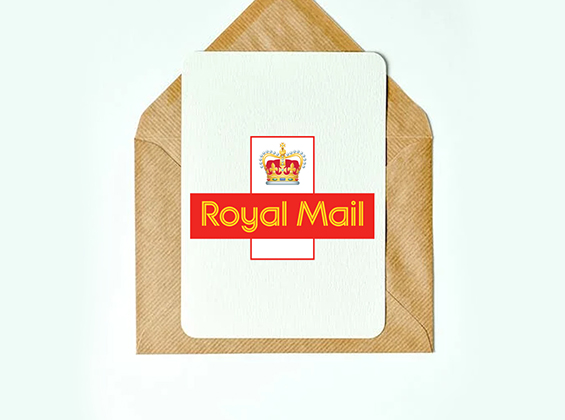
Bauer Media appoints new Head of People – UK Publishing
Bauer Media Group has confirmed that Paul Broughton will join its UK Publishing business as Head of People – UK Publishing.
Industry News
Industry News
From Alan Yentob and Dylan Jones to Richard Branson, a host of media grandees gathered to pay tribute to the man who started a magazine on a kitchen table, and built it into a global empire. Former Time Out editor Dominic Wells reports.
It was the cruellest aspect of lockdown that so many were laid to rest with their lives uncelebrated by wider family and friends. A memorial event on Monday evening at the Roundhouse marked a belated corrective for one of the giants of British publishing: Tony Elliott. Tony started Time Out magazine in 1968 from his kitchen table, initially funded by a 21st birthday present from his aunt, and built it into a global empire. It spanned travel, restaurant and film guides, half a dozen editor-curated markets, and editions in 40 cities round the world – most notably New York, where in the late ‘90s the brash new British interloper supplanted Village Voice as the entertainment bible, accompanied by typically ballsy billboard ads proclaiming: “WELCOME TO NEW YORK – NOW GET OUT”.
Tony died after a long illness at the age of 73, nearly two years ago, and it’s only now that 800 of the great and the good of British media could gather to publicly remember him. Getting the guest list down to so few was an unenviable task for his widow, Janey, since Tony touched the lives of millions. In small ways: the art movies, restaurants, exhibitions and clubs discovered and championed by Time Out that allowed readers to enjoy London to the fullest. And in big ways: the careers made, such as David Hare, who credits Time Out’s Fringe reviews with giving him his break as a playwright; the legions of comedians who, as Arthur Smith once told me, would compete over the gnomic three-word descriptions of their act in the listings, let alone a coveted cover; or the dozens of Time Out staffers who graduated to senior positions in national newspapers, television and radio.
In an hour-long ceremony in the main Roundhouse theatre, which itself owes its success in no small measure to Tony’s advice and support, a succession of grandees took to the stage to pay tribute. Alan Yentob, former Creative Director of the BBC, spoke of how Time Out started as a guide to the cultural scene, but grew to influence it. “We talk of digital natives and the digital divide,” he said, “but before that there was the Time Out divide: before and after Time Out.”
Richard Branson, who suffered one of his few business setbacks when he launched Event magazine as an attempted rival, sent a video message in which he cheerfully recalled how “Tony kicked my arse”. In that venture, anyway, as they remained life-long friends.
A succession of Time Out editors – pretty much one for each decade – shared their memories, and I interviewed Dylan Jones and Caryn Franklin, both former editors of i-D. It’s often left out of the Time Out story that Tony took a 51 per cent stake in 1984 and applied the business nous turn its fortunes around, after which i-D became one of the most influential of all British style publications, long outliving The Face.
An hour could never do full justice to Tony’s legacy, let alone a short report on the event. But I would like to repeat one of my own memories, which time pressure prevented me from sharing on stage. It illustrates how, though Tony was eternally kind-hearted and boyishly enthusiastic, when it came to his magazine he could be as tough as a bear defending its cubs.
Cannon Cinemas once asked us to retract a review of a book about the company that was not entirely flattering. They warned they would withdraw all their advertising if we didn’t – and that was over half a million quid a year. I’ll always remember Tony saying that the editorial integrity of Time Out was beyond price. And also, “Fuck ‘em,” Tony said. “They need us more than we need them.”
And so it proved. Six months later they came crawling back saying their cinemas were now empty, and could they please advertise again? Certainly, we said. But you can forget about that bulk discount you used to get. How many publishers now would stand up to an advertiser like that?
Event organisers recall that when Tony would put Time Out’s support behind them, he never asked, as other media companies did, what he would get out of it. His enthusiasm for the event was enough. Guide editors recall him being prepared to publish at a loss rather than scrimp on quality. Restaurant reviews were always paid for by the magazine so as to remain unbiased. However much Tony disagreed with a critic, or indeed editor, he would never seek to overrule their opinion.
Oscar Wilde once wrote that a cynic is someone who knows the price of everything and the value of nothing. If so, Tony remained an optimist to the last. We are all greatly in his debt.
_Dominic Wells joined Time Out as a sub-editor in 1987, and was editor from 1992 to 1999
_

Bauer Media Group has confirmed that Paul Broughton will join its UK Publishing business as Head of People – UK Publishing.

On 10 July, Ofcom published its final decision on reforms to the Universal Service Obligation (USO), confirming a number of changes that will significantly affect how subscription magazines are delivered.
Chancery House, 53-64 Chancery Lane, London WC2A 1QS




If you have a member login, enter your details below. Please note, that your login is for PPA.co.uk only and not for our event sites.
If you are a member but don’t have an account yet, you can setup your account here.
Any problems, please contact membership@ppa.co.uk.